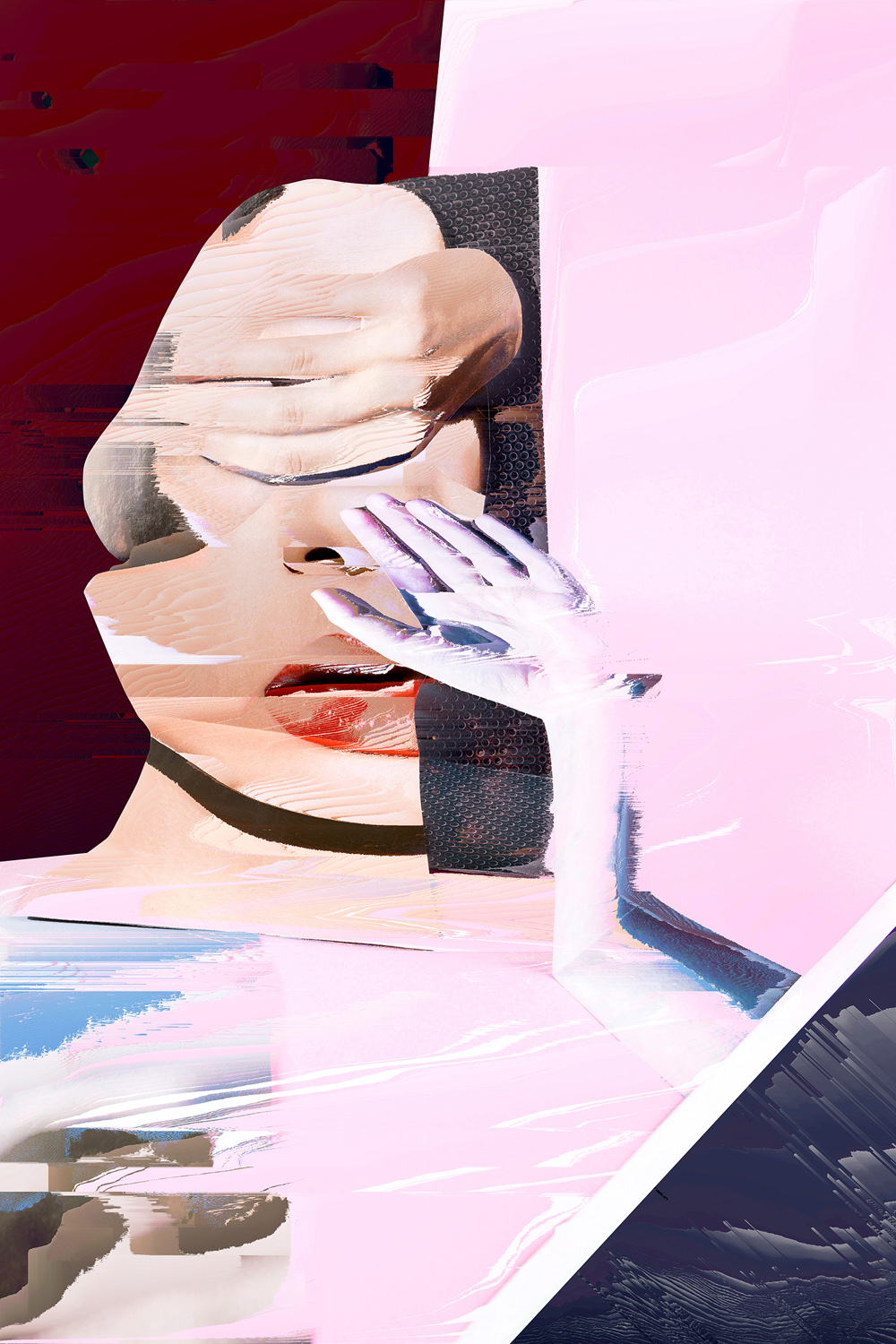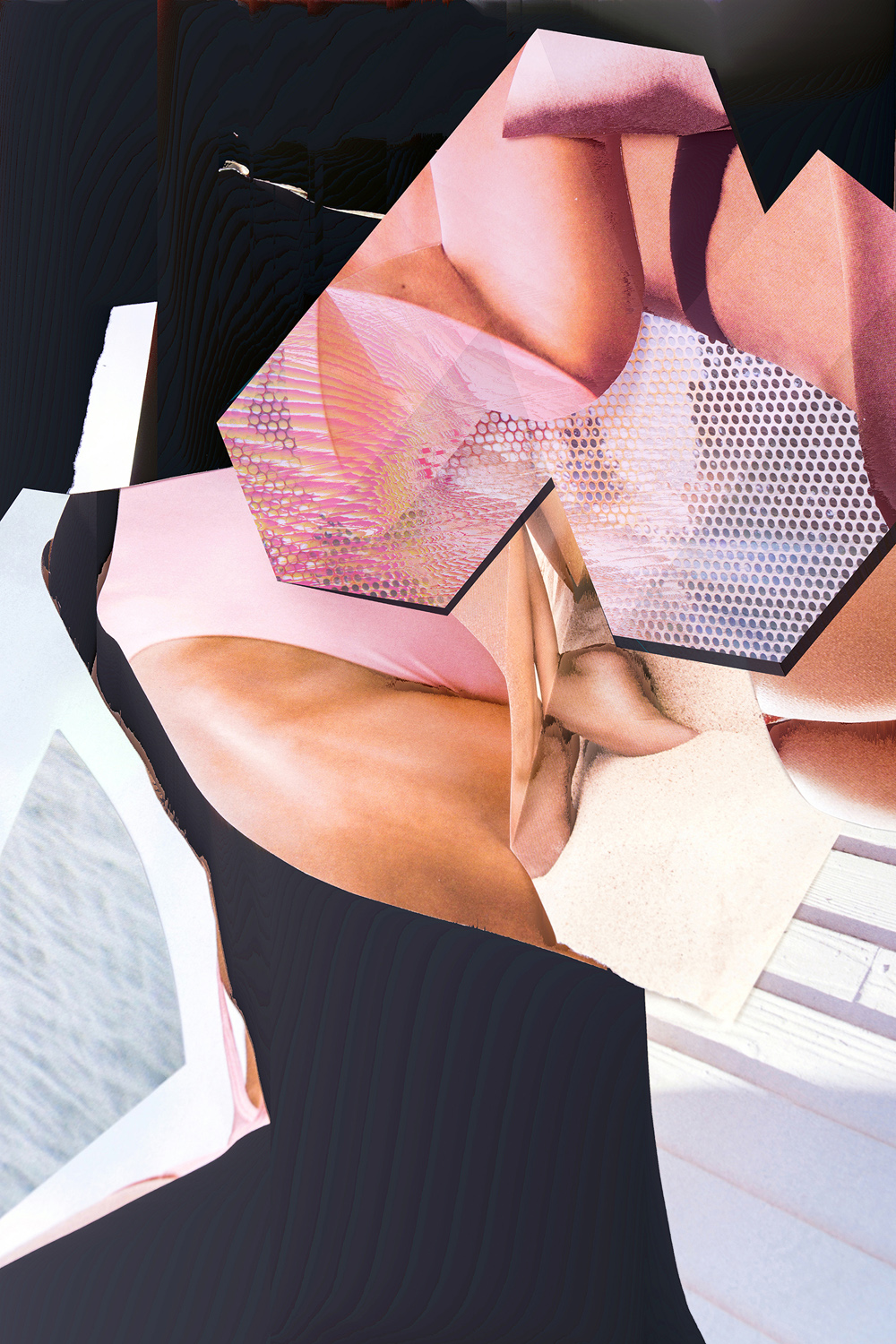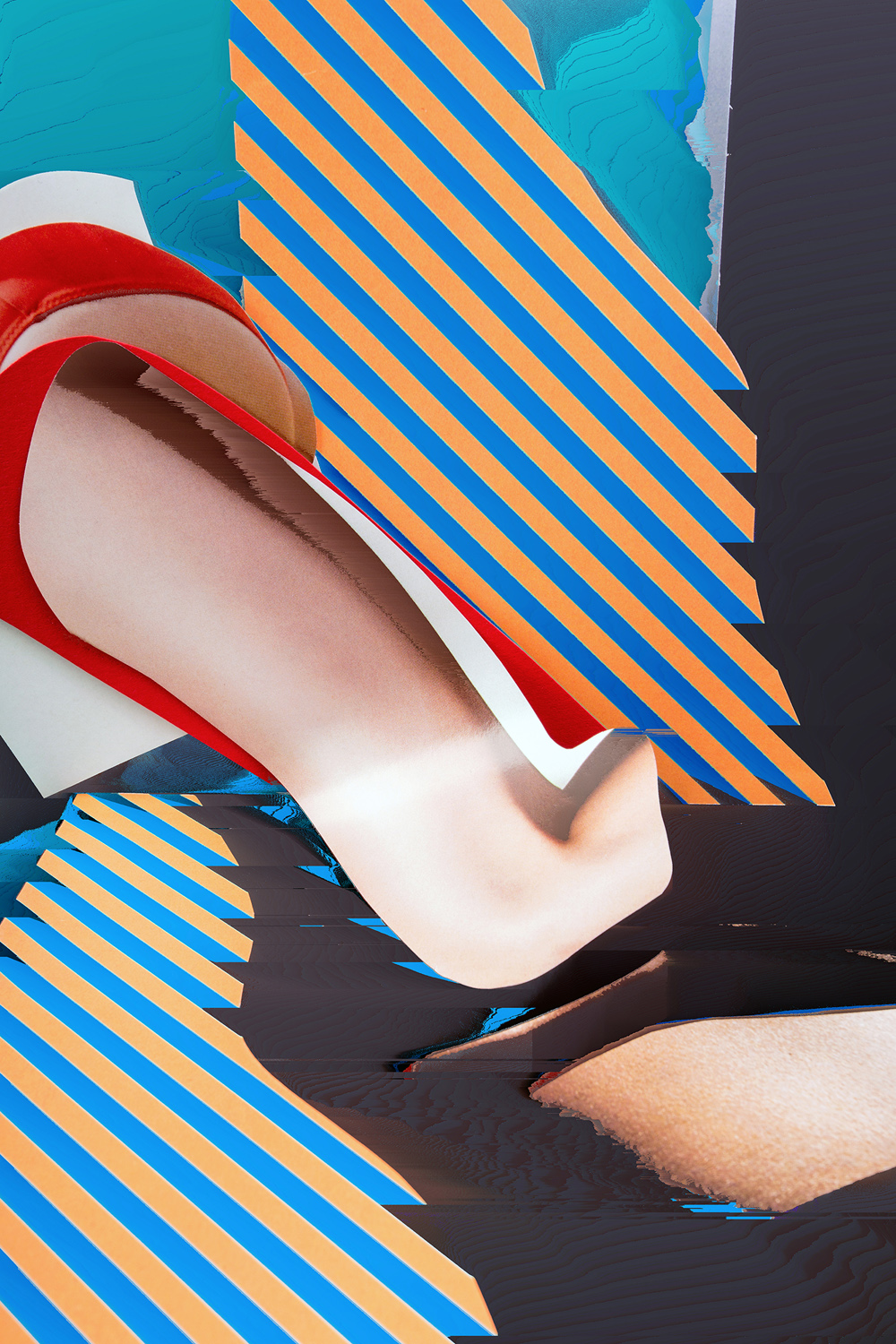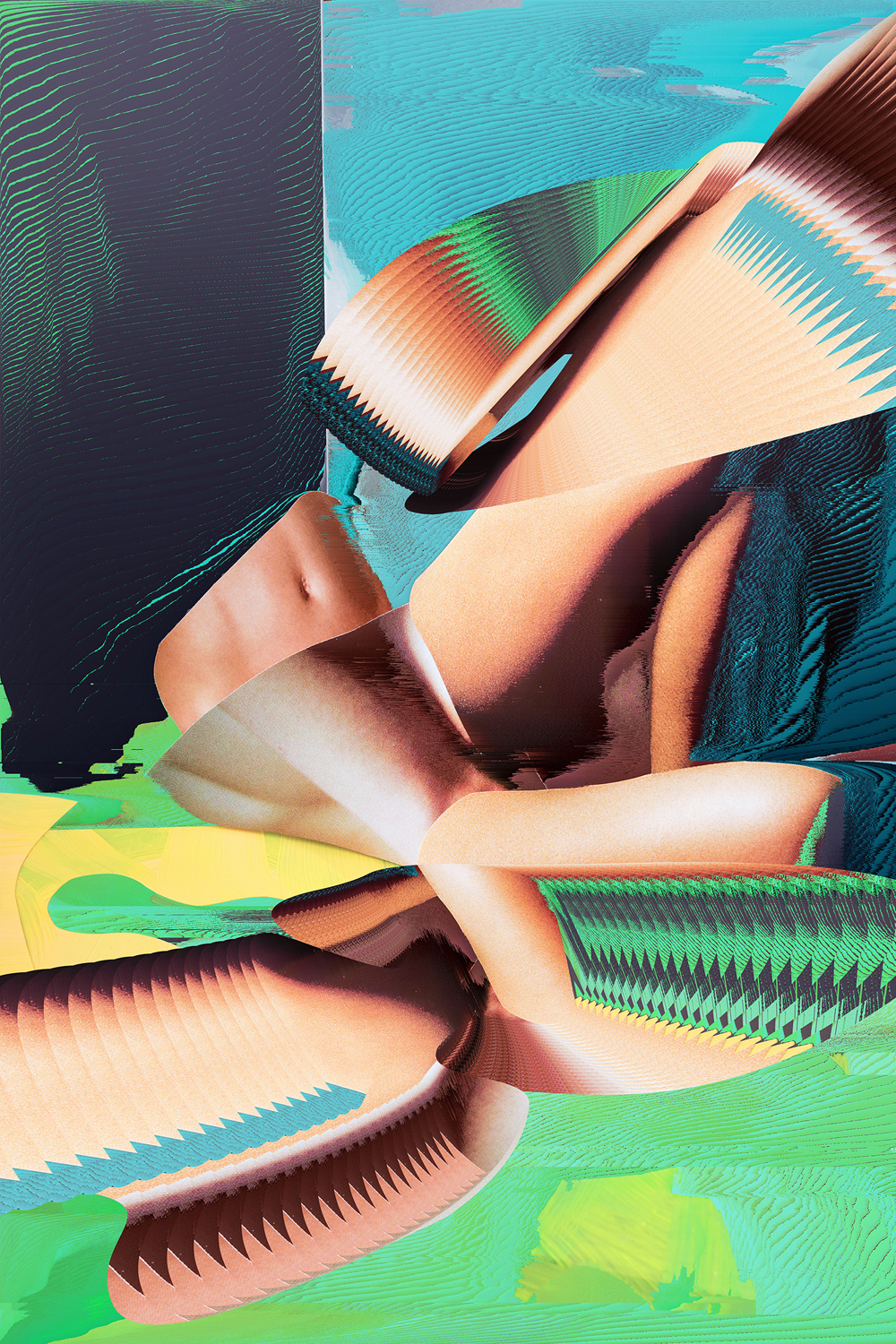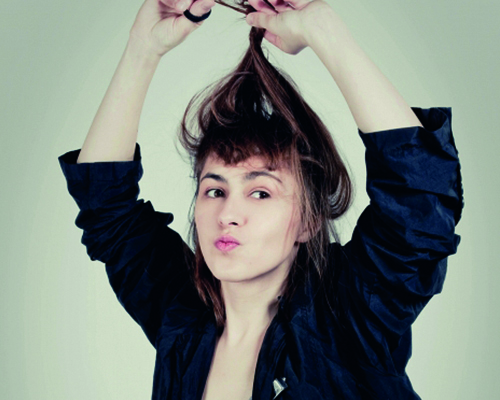Anargyros Drolapas
Artist Feature
Every week an artist is featured whose single image was published by Der Greif. The Feature shows the image in the original context of the series.
Ewa Doroszenko - Body Editor
May 29, 2019
While the Internet can seem like a place disconnected from the physical world, much of the activity that occurs there deeply affects how people feel outside of it. In the age of social media, where selfhood is effaced by self-promotion, and the glorification of digital beauty undermines the truthfulness of real self-expression, women very often become dissatisfied with what they see in the mirror. Modern technology provides women with tools that allow them to quickly create dream digital image of themselves. Using various beauty applications, they can smooth, contour their faces, whiten their teeth, add a few centimeters of height, enlarge their eyes, choose different mouths, and use many other options. In the series, I tried to challenge our trust of digitally constructed imagery in the context of the post-photographic era. The project was inspired by the failures and bugs in the popular beauty apps, where unnatural bodies get distorted. I used photography as a starting point, alongside digital tools to create an expressive project that is both a critique and a celebration of the ongoing progress in contemporary technology and culture. I employed many methods of creating images: preparing three-dimensional collages constructed from stock images and her own portraits, photographing the scenes, printing in large sizes, physically manipulating prints, and digitally editing selected photos. In the final work, I tried to leave visible traces of digital processing, partly revealing my working methods in order to provoke discussion about contemporary photography. Digitally edited images can serve as aspirational fantasies and occasionally they even can have a positive impact – when they are just effects of joyful entertainment. But can the game in which “your body is a battleground” be truly enjoyable? The phrase from Barbara Kruger’s iconic work has just as much resonance today as it did more than a quarter of a century ago.







